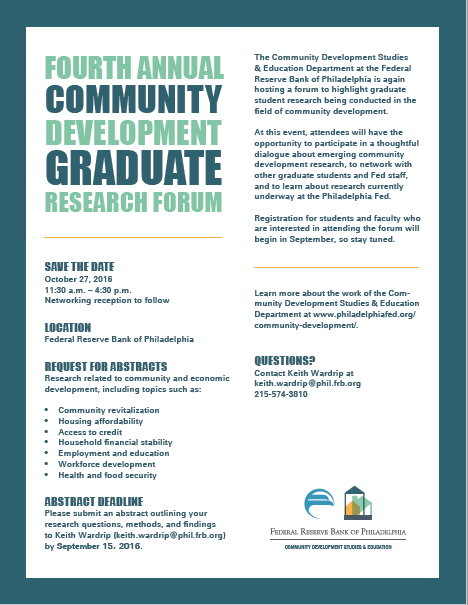Category: News
CURE Receives National Science Foundation Grant to Study Causes of Concentrated Poverty
In summer 2013, a groundbreaking report by the Center for Urban Research and Education (CURE) at Rutgers University–Camden and The Century Foundation revealed that concentrated poverty has increased by 50 percent since 2000, and more than 11 million Americans now reside in neighborhoods where at least two in every five households live below the poverty line.
While “The Architecture of Segregation” alarmed scholars and policymakers alike, little research has attempted to determine the root causes of this concentrated poverty – that is, until now.
Thanks to a $218,378 grant from the National Science Foundation’s Geography Spatial Sciences Program, scholars from the Rutgers research center and George Mason University will examine the determinants of the concentration of poverty – the extent to which the poor are isolated in high-poverty neighborhoods – with an emphasis on the role of public policies that shape metropolitan growth and development.
GAIA Centers Celebrates Rutgers 250 Anniversary
CURE affiliated scholar Lori Minnite in the news: “Little evidence of voter fraud in key voter ID states”
Dr. Lorraine Minnite (associate professor, FASC-public policy) shared research expertise during an interview that appeared in a News21 news story.
The story also appeared on:
Arizona Capitol Times.com: https://azcapitoltimes.com/news/2016/08/24/a-review-of-key-states-with-voter-id-laws-found-no-voter-impersonation-fraud
Battle Creek Enquier.com: https://www.battlecreekenquirer.com/story/news/politics/elections/2016/08/24/voter-identification-laws-fraud/89257272
NBC News.com: https://www.nbcnews.com/news/us-news/study-finds-no-evidence-widespread-voter-fraud-n637776
Philly Fed’s 4th annual Community Development Graduate Research Forum — deadline for abstracts Sept 15


